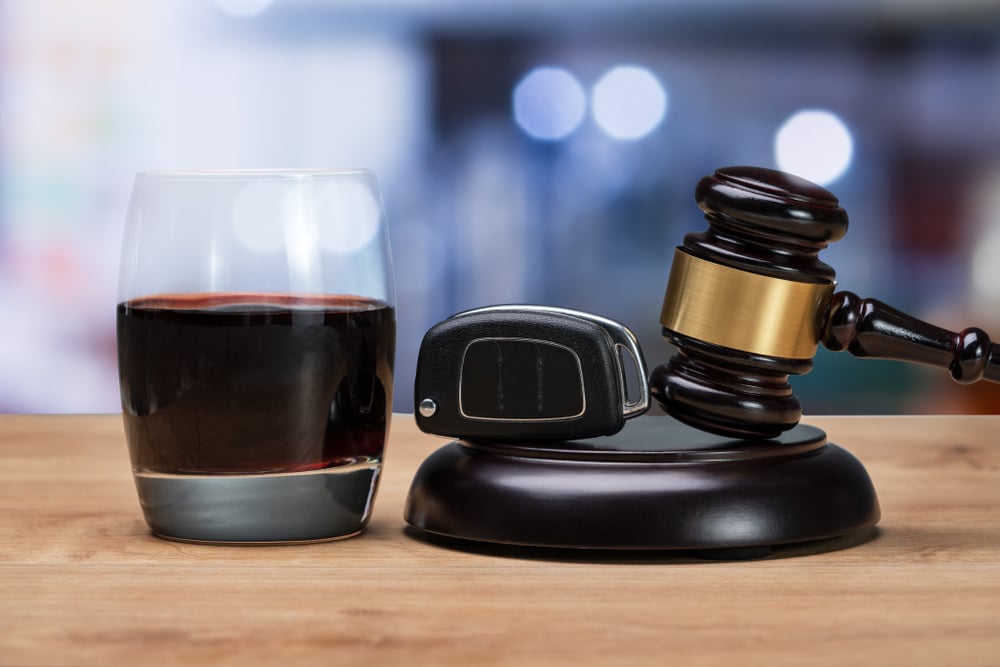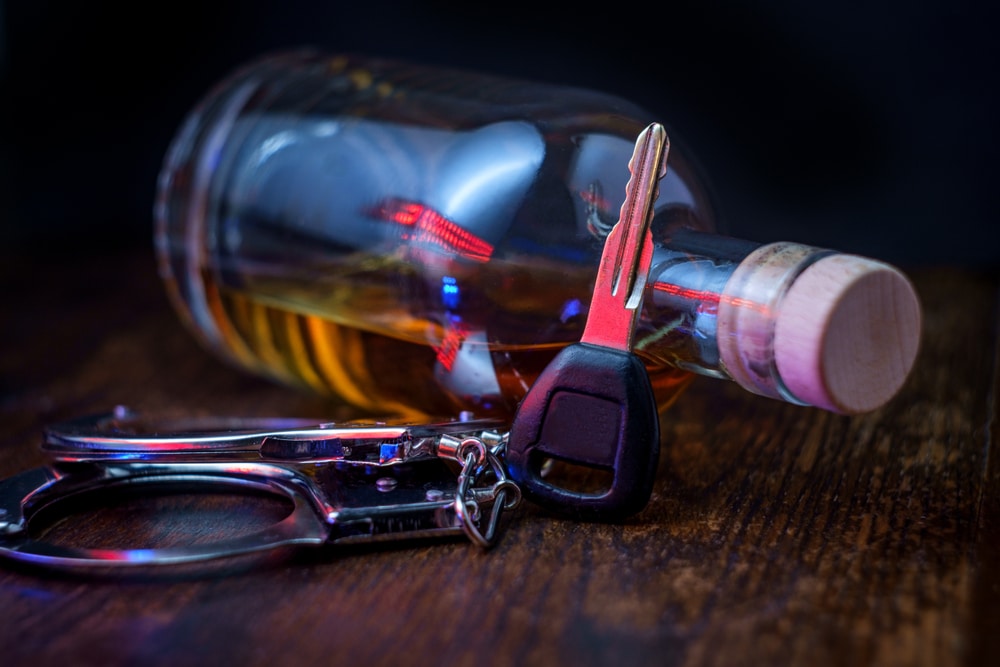
Virginia maintains some of the strictest DUI laws in the United States, reflecting the state’s commitment to reducing alcohol-related traffic incidents. The legal blood alcohol concentration (BAC) limit is 0.08% for regular drivers and 0.04% for commercial drivers. Virginia follows a “zero tolerance” policy for drivers under 21, with a BAC limit of 0.02%.
Law enforcement agencies across Virginia employ a multi-faceted approach to DUI enforcement, including sobriety checkpoints, saturation patrols, and targeted enforcement during high-risk periods such as holidays and major events. The state’s implied consent law requires drivers to submit to chemical tests when requested by law enforcement, with refusal resulting in automatic license suspension.

0.08% or higher for regular drivers and 0.04% for commercial drivers

Yes

7 days

Mandatory

Yes (0.15%+)
Virginia’s approach to DUI prevention and enforcement has evolved significantly over the past decades, shaped by both legislative changes and technological advancements. The state has seen a gradual decrease in DUI-related fatalities, though challenges persist in certain regions and demographic groups.
The Commonwealth’s DUI landscape is characterized by strong cooperation between law enforcement agencies, courts, and treatment providers. The Virginia Highway Safety Office coordinates with local agencies to implement evidence-based strategies for reducing impaired driving, while the Virginia Alcohol Safety Action Program (VASAP) provides comprehensive services for DUI offenders.
First-time DUI offenders in Virginia face a minimum fine of $250, license revocation for one year, and mandatory participation in VASAP. The court may also impose jail time of up to 12 months. Elevated BAC levels trigger additional mandatory minimum jail sentences: 5 days for BAC of 0.15-0.20% and 10 days for BAC above 0.20%.
Subsequent offenses carry increasingly severe penalties. A second offense within ten years results in a minimum $500 fine, three-year license revocation, and mandatory jail time. Third and subsequent offenses are classified as felonies, carrying substantial prison sentences and permanent license revocation. All offenders must install an ignition interlock device on their vehicles for a specified period.
Virginia law provides enhanced penalties for DUI offenses involving aggravating factors. Driving under the influence with a minor (under 17) in the vehicle results in additional mandatory minimum jail time and fines. DUI causing serious injury is prosecuted as a Class 6 felony, while DUI causing death is charged as involuntary manslaughter, carrying potential prison sentences of up to 20 years.
Commercial drivers face particularly strict regulations, with lower BAC limits and more severe consequences for violations. A DUI conviction while operating a commercial vehicle results in a one-year commercial driver’s license (CDL) disqualification for first offenses and lifetime disqualification for subsequent offenses, even if the violation occurred in a personal vehicle.
Virginia law enforcement utilizes a comprehensive approach to DUI detection and enforcement. Officers receive specialized training in standardized field sobriety testing (SFST) and advanced roadside impaired driving enforcement (ARIDE). Many officers are also certified as Drug Recognition Experts (DREs) to better identify drug-impaired driving.
The state conducts regular sobriety checkpoints, which must follow strict constitutional guidelines and operational procedures. These checkpoints are publicized in advance and operated according to predetermined protocols to ensure legal compliance. Additionally, law enforcement agencies employ targeted patrols in high-risk areas and during times when impaired driving is more likely to occur.
Virginia law enforcement agencies utilize state-of-the-art technology for DUI detection and evidence collection. Preliminary breath test (PBT) devices provide initial screening at traffic stops, while evidentiary breath test instruments like the Intox EC/IR II provide court-admissible results. These instruments undergo regular calibration and maintenance to ensure accuracy.
Blood testing is conducted at certified laboratories following strict chain-of-custody procedures. The state has implemented electronic warrant systems in many jurisdictions to expedite blood draw authorizations. Additionally, officers use body-worn cameras and in-car video systems to document DUI investigations, providing valuable evidence for court proceedings.
The Virginia Alcohol Safety Action Program (VASAP) serves as the cornerstone of the state’s DUI treatment and rehabilitation efforts. All convicted DUI offenders must complete VASAP, which includes education, counseling, and substance abuse treatment as needed. The program’s length and intensity vary based on individual assessment results and offense history.
Treatment options range from education-focused interventions for first-time offenders to intensive outpatient or residential programs for those with more severe substance use disorders. Programs incorporate evidence-based practices such as cognitive-behavioral therapy, motivational interviewing, and relapse prevention strategies.
Virginia’s mandatory treatment framework operates under a structured system that begins with a comprehensive assessment of each offender. This assessment evaluates substance use patterns, risk factors, and treatment needs to determine appropriate intervention levels. The framework includes specific requirements for program attendance, substance abuse screening, and progress monitoring.
Treatment providers must meet state certification requirements and follow standardized protocols for service delivery. The framework includes provisions for specialized treatment approaches for specific populations, such as young offenders, veterans, and individuals with co-occurring mental health disorders.


Offender monitoring in Virginia involves multiple layers of supervision and technology. The ignition interlock program requires regular device calibration and downloading of violation reports. VASAP case managers monitor attendance, treatment progress, and compliance with program requirements.
Courts may impose additional monitoring requirements, such as random drug and alcohol testing, remote breath testing devices, or GPS monitoring for high-risk offenders. Violations of monitoring requirements can result in program extensions, additional penalties, or revocation of suspended sentences.
The administrative process for DUI cases in Virginia operates parallel to criminal proceedings. The Department of Motor Vehicles (DMV) handles license suspensions and revocations, while VASAP oversees treatment compliance and monitoring. These processes include specific timeframes for appeals and reinstatement procedures.
Administrative procedures for DUI cases include automatic license suspension upon arrest (seven days for first offense, longer for subsequent offenses), administrative license revocation hearings, and specific requirements for license reinstatement. The DMV maintains detailed records of violations, compliance, and eligibility for various programs.
DUI cases proceed through Virginia’s court system with specific procedural requirements and timelines. Cases typically begin in General District Court, with felony cases being certified to Circuit Court after preliminary hearing. The courts maintain specialized DUI dockets in many jurisdictions to ensure consistent handling of cases.
Prosecutors must provide discovery materials, including calibration records for testing devices and officer certifications. Defense attorneys have specific timeframes for filing motions and requesting hearings. The court process includes provisions for plea agreements, trial procedures, and sentencing guidelines.
Key agencies involved in Virginia’s DUI enforcement and treatment system include:
– Virginia Department of Motor Vehicles (DMV)
– Virginia Alcohol Safety Action Program (VASAP)
– Virginia Department of Forensic Science
– Virginia State Police
– Virginia Highway Safety Office
– Local law enforcement agencies
– Virginia Department of Behavioral Health and Developmental Services
Each agency plays a specific role in the state’s comprehensive approach to DUI prevention, enforcement, and rehabilitation.
Virginia participates in the Driver License Compact, sharing DUI conviction information with other states. Out-of-state convictions count toward Virginia’s repeat offender penalties, and Virginia reports convictions to offenders’ home states. The state also participates in regional enforcement initiatives and information-sharing programs.
Virginia faces unique jurisdictional challenges due to its proximity to federal facilities, military bases, and the nation’s capital. Special considerations apply to offenses committed on federal property or military installations. The state maintains agreements with neighboring jurisdictions regarding enforcement and prosecution of cross-border DUI incidents.
The economic impact of DUI in Virginia includes direct costs such as enforcement, prosecution, incarceration, and treatment programs. Individual offenders face significant financial burdens including fines, fees, increased insurance rates, and treatment costs. A first offense typically costs between $5,000 and $10,000 when all expenses are considered.
State and local governments allocate substantial resources to DUI enforcement and prevention. These costs include specialized equipment, officer training, laboratory services, and court operations. The economic impact extends to emergency response services and healthcare costs associated with DUI-related crashes.


The societal impact of DUI extends beyond direct financial costs to include lost productivity, property damage, and the emotional toll on victims and families. Virginia estimates annual societal costs of DUI in the hundreds of millions of dollars, including medical expenses, lost wages, and reduced quality of life for those affected by impaired driving incidents.
Communities bear additional burdens through increased insurance rates, emergency services costs, and the strain on social service systems. The impact on families of both offenders and victims creates ripple effects throughout society, affecting employment, housing, and family stability.
Virginia continues to evaluate and update its DUI laws and procedures in response to emerging challenges and technological advances. Current trends include discussion of lowering the BAC limit to 0.05%, expanding drug testing capabilities, and enhancing penalties for poly-substance impairment.
Legislative initiatives focus on strengthening prevention programs, improving treatment access, and addressing emerging issues such as cannabis impairment and prescription drug use. The state monitors national trends and research to inform policy decisions.
Virginia increasingly relies on technology for DUI enforcement and monitoring. Advanced breath testing devices, electronic warrant systems, and sophisticated ignition interlock technology enhance detection and prevention efforts. The state is exploring additional technologies such as transdermal alcohol monitoring and mobile testing applications.
Current challenges include:
– Addressing drug-impaired driving, particularly with cannabis legalization
– Managing the impact of ride-sharing services on impaired driving patterns
– Developing testing protocols for new synthetic drugs
– Adapting to changing social attitudes and behaviors regarding substance use
Virginia implements comprehensive prevention and education initiatives targeting various age groups and populations. Programs include:
– School-based education programs
– Public awareness campaigns
– Server training for alcohol retailers
– Community-based prevention initiatives
– Workplace safety programs
These efforts emphasize early intervention and risk reduction strategies.
A DUI conviction can have significant employment implications, particularly for positions requiring driving or security clearances. Commercial drivers face potential career-ending consequences, while other professionals may experience limitations on job opportunities or licensing restrictions. Some employers require disclosure of DUI convictions during hiring processes.
Virginia regularly evaluates the effectiveness of its treatment programs through recidivism studies and outcome assessments. VASAP data indicates reduced re-offense rates among program completers compared to non-participants. The state continues to refine treatment approaches based on evidence-based practices and program evaluation results.
DUI convictions significantly impact insurance coverage and costs in Virginia. Insurers typically increase rates substantially or may cancel coverage entirely. State law requires offenders to maintain higher liability coverage limits and file SR-22 certificates verifying insurance coverage.


Virginia requires DUI offenders to maintain SR-22 insurance certification for three years following license reinstatement. This special filing verifies continuous insurance coverage and must be maintained even if the person moves to another state. Lapses in coverage result in immediate license suspension.
DUI convictions can have long-lasting effects on various aspects of life, including:
– Employment opportunities
– Professional licensing
– Housing options
– Educational opportunities
– Travel restrictions
– Personal relationships
– Financial stability
The state provides resources and support services to help offenders address these challenges while maintaining public safety requirements.
Virginia’s approach to DUI enforcement and prevention represents a comprehensive system combining strict laws, thorough enforcement, and rehabilitation opportunities. The state maintains some of the nation’s most stringent DUI laws, with penalties escalating significantly for repeat offenders and aggravating circumstances. The system integrates multiple agencies and technologies to enhance detection and prevention efforts.
The Virginia Alcohol Safety Action Program serves as a crucial component, providing standardized assessment and treatment services statewide. The program’s effectiveness is supported by data showing reduced recidivism among participants who complete treatment requirements. Technological advances continue to enhance enforcement capabilities, while legislative updates address emerging challenges such as drug-impaired driving.
The economic and societal impacts of DUI remain significant, affecting both individuals and communities through direct costs, increased insurance rates, and broader social consequences. Virginia’s prevention and education efforts target various populations through evidence-based programs and public awareness campaigns. The state’s approach recognizes the importance of balancing punishment with rehabilitation opportunities.
Interstate cooperation and jurisdictional coordination play vital roles in Virginia’s DUI enforcement strategy, particularly given the state’s geographic location and mobile population. The system continues to evolve through legislative updates, technological integration, and program refinements based on outcome evaluations and emerging best practices.
Future developments in Virginia’s DUI laws and procedures will likely focus on addressing emerging substances, enhancing detection capabilities, and strengthening prevention efforts. The state’s commitment to reducing impaired driving is reflected in its comprehensive approach to enforcement, treatment, and prevention, serving as a model for other jurisdictions while continuing to adapt to new challenges and opportunities for improvement.
At DUI 101, our mission is to empower you with the knowledge needed to make informed decisions during this challenging time. Explore our articles and guides to better understand your situation and the steps ahead.
© 2024 Chapman SEO LLC. This website is for educational and informational purposes only. All content is created using AI technology and maintained by non-lawyers and should not be considered legal advice. The information provided is general in nature and may not be suitable for your specific situation. Always consult with a qualified legal professional for advice regarding your individual circumstances. We do not create attorney-client relationships through this website. By using this site, you acknowledge that you have read and understand these terms.